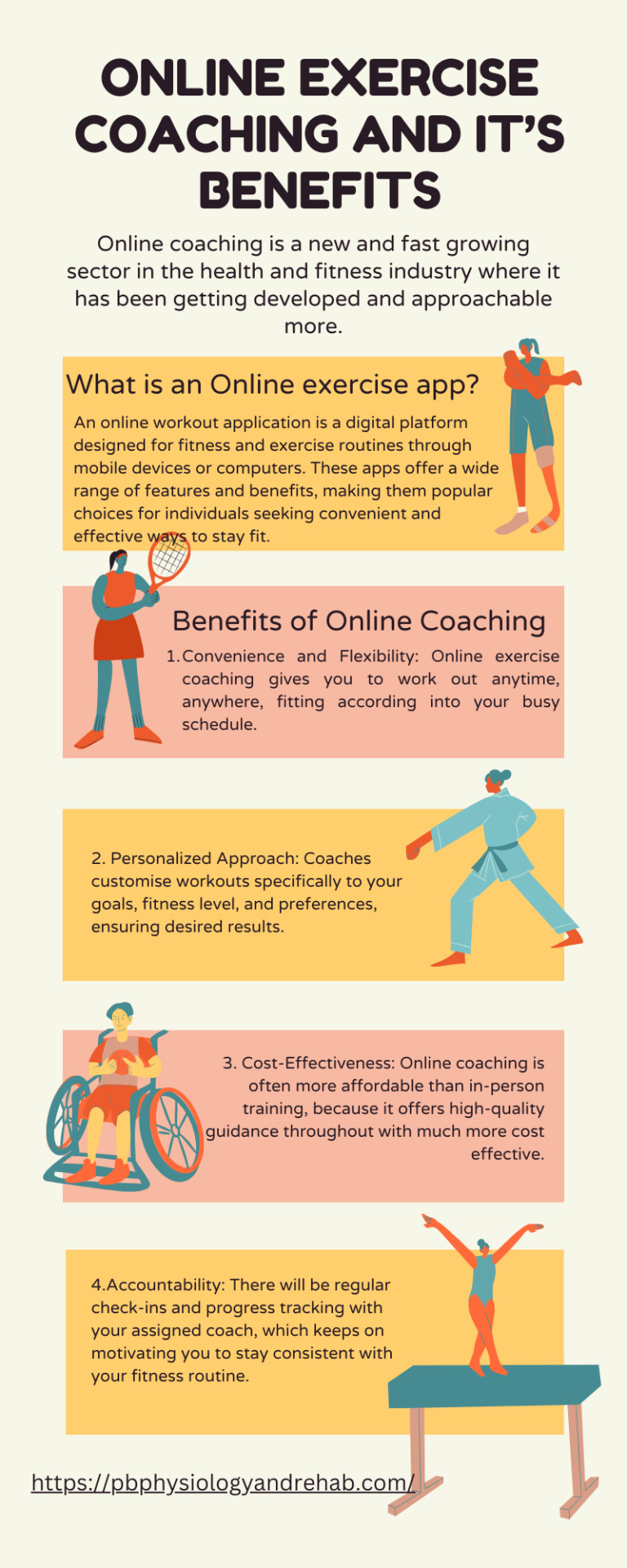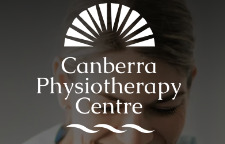#exercise physiology
Text
Does anyone else see an exercise physiologist? It’s been so helpful to me and it’s not a recommendation I usually see given to people who don’t have physical disabilities even though it can be very beneficial to anyone who has trouble exercising, weight bearing or even just significant anxiety around exercise.
2 notes
·
View notes
Text


9.6.22 // Aesthetic notes ft. daily Florida thunderstorm
Today is the only day I don’t work between 8-15 hours, so I had to finish my lectures for module 1 and bust out the notes for week 1 lectures. My cat normally hangs out while I do homework since that was our routine since she was a kitten, so naturally she started by tasting my PSL.
As of now, I have a decent hand cramp, so I’m going to attempt the first knowledge quiz of the module. That is, assuming my building isn’t struck by lightning. ⛈⛈⛈
#studyblr#inspiration#studyspo#study motivation#bullet journal#college#motivation#organization#goals#notes#studyspiration#academics#exercise physiology#uf#university of florida
3 notes
·
View notes
Text
#Weight Loss Program#Nutrition Counseling#Personal Training#Fitness Classes#Meal Planning#Wellness Coaching#Dietitian Consultation#Body Composition Analysis#Health Assessment#Exercise Physiology#Meal Replacement Shakes#Yoga Classes#Meditation Sessions#Cardio Workouts#Strength Training#Group Fitness#Nutritional Supplements#Meal Delivery Service#Health Education Workshops#Stress Management#Lifestyle Coaching#Behavior Modification#Mindfulness Practices#Wellness Retreats#Detox Programs#Holistic Healing#Spa Treatments#Medical Weight Loss#Meal Prep Services
0 notes
Text
Junior athletes are the future of athletic greatness in the world of sports. Their quest is characterized by commitment, diligence, and the desire to realize their greatest potential. But there are risks associated with this path.
Junior athletes are especially prone to injuries because of their growing bodies, heavy training loads, and rigorous training schedules.
As these young individuals engage in rigorous training and competition, they are prone to various injuries that can hinder their performance and jeopardize their long-term athletic potential. However, with the expertise of exercise physiologists, preventative measures can be implemented to safeguard the well-being of junior athletes and optimize their athletic development.
Read more:
0 notes
Text
#commercial gym equipment#rehab & recovery#biomecenics#exercise_science#fitness enthusiasts#gym_equipment#health & fitness#exercise physiology#exercise_physiology#Sports_science#exercise sports science#sports physiology#Sports_Science_Equipment
0 notes
Text
Health and Fitness
In fitness, a critical distinction emerges between health-related and skill-related fitness, each playing a unique role in enhancing overall well-being. Health-related fitness primarily focuses on components that contribute to one's physical health, encompassing cardiovascular endurance, muscular strength, flexibility, body composition, and endurance.
#Health-related fitness#Skill-related fitness#Physical well-being#Exercise physiology#Cardiovascular health#Motor skills
0 notes
Text
1 note
·
View note
Text
Physiotherapy: An In-Depth Exploration of the Science of Movement and Rehabilitation
In a contemporary world where the spotlight is on health and well-being, physiotherapy emerges as a pivotal discipline bridging the gap between medical treatment and recovery. Also known as physical therapy in some regions, physiotherapists are integral healthcare professionals focused on restoring and optimizing an individual's physical function. This comprehensive exploration delves into the multifaceted realm of physiotherapy, unraveling its fundamental principles, methodologies, and profound impact on patients.
The Core Principles of Physiotherapy
Physiotherapy operates on a set of core principles that underpin its approach to healing and rehabilitation, forming the basis for assessing, treating, and managing various health conditions.
Human Movement as a Key Component
Central to physiotherapy is the acknowledgment of human movement's crucial role in overall health. The discipline recognizes that movement is indispensable for physical well-being, and limitations in movement can lead to a spectrum of health issues.
Personalized Care
Physiotherapy places significant emphasis on providing personalized care, recognizing the uniqueness of each individual. Therapies are meticulously tailored to address the distinct requirements and objectives of patients, whether recovering from surgery, managing persistent conditions, or enhancing physical capabilities.
Evidence-Based Practice
Firmly rooted in evidence-based practice, physiotherapy ensures that treatments and interventions are guided by the latest research and clinical evidence, guaranteeing patients receive optimal care.
Collaboration and Education
Physiotherapists collaborate closely with patients and other healthcare professionals to achieve optimal outcomes. Education is a fundamental component of physiotherapy, empowering patients to actively engage in their care and recovery process.
The Science of Movement
At the heart of physiotherapy lies the science of movement, encompassing the knowledge of how the body moves, how it can be restored to optimal function, and how movement contributes to health. Key areas within the science of movement include:
Anatomy and Physiology
Physiotherapists possess a profound understanding of human anatomy and physiology, enabling them to assess the impact of injuries or conditions on the body's structures and functions, guiding the development of appropriate treatment plans.
Biomechanics
Biomechanics studies how the body moves and the forces that affect movement. Physiotherapists use biomechanical principles to analyze gait, posture, and joint motion, providing insights that inform treatment decisions.
Neurology
Understanding the nervous system and its role in movement is crucial for managing conditions affecting neurological function. Physiotherapists often work with individuals who have neurological disorders, helping them regain movement and independence.
Rehabilitation Techniques
Physiotherapists employ a wide range of techniques to facilitate movement and rehabilitation. These may include manual therapy, exercise programs, electrotherapy, and various therapeutic modalities.
Conditions Treated Through Physiotherapy
Physiotherapy is a versatile discipline that addresses a broad spectrum of health conditions, including:
Musculoskeletal Conditions
Physiotherapists specialize in managing conditions affecting the musculoskeletal system, such as back pain, osteoarthritis, and sports injuries.
Neurological Disorders
Physiotherapy is instrumental in helping individuals with conditions like stroke, Parkinson's disease, and multiple sclerosis regain movement and improve their quality of life.
Cardiopulmonary Conditions
In cardiopulmonary physiotherapy, professionals focus on rehabilitating patients with cardiac and respiratory issues.
Pediatric Conditions
Physiotherapy is essential for children with developmental delays or conditions affecting their movement and mobility.
Pre- and Post-Surgery Care
Before and after surgical procedures, physiotherapy plays a crucial role in preparing patients and facilitating their recovery.
Impact on Overall Health
The effects of physiotherapy extend beyond the rehabilitation of specific conditions, contributing significantly to overall health by:
Pain Management
Physiotherapists use various techniques to manage pain, whether related to injury, chronic conditions, or surgery.
Improved Mobility
Enhancing mobility is a core goal of physiotherapy, contributing to better physical function and a higher quality of life.
Prevention of Injuries
By identifying risk factors and providing preventive strategies, physiotherapists help individuals avoid injuries and maintain an active lifestyle.
Enhanced Performance
Physiotherapy assumes a pivotal role in enhancing physical performance, extending beyond rehabilitation. Athletes regularly collaborate with physiotherapists to improve their strength, flexibility, and endurance.
Physiotherapy in Practice: A Patient's Journey
To illustrate the real-world impact of physiotherapy, consider a patient who has undergone knee surgery. Their physiotherapist crafts a personalized rehabilitation plan comprising exercises to strengthen the muscles around the knee, improve joint mobility, and manage pain. As the patient progresses, the physiotherapist monitors their condition, makes necessary adjustments, and offers guidance on returning to daily activities and sports.
The Future of Physiotherapy
As healthcare evolves, the future of physiotherapy appears promising. Technological advancements, telehealth, and digital tools are expanding its reach, making physiotherapy more accessible globally. Ongoing research continues to refine treatment methods and broaden our understanding of movement and rehabilitation.
Conclusion
Physiotherapy, grounded in the scientific domains of movement and rehabilitation, is a priceless healthcare field profoundly influencing the well-being of individuals across various conditions. By harnessing the principles of personalized care, evidence-based practice, and the science of movement, physiotherapists play a vital role in enhancing mobility, managing pain, preventing injuries, and optimizing physical performance. As we move forward, the future of physiotherapy promises to be even more transformative, solidifying its position as a cornerstone of healthcare and well-being.
0 notes
Text

Online exercise coachings will possess continuous support throughout and not just scheduled sessions. Advantage of this is that when a client needs help, they can reach out to their assigned coach at time and the coach will be available.
0 notes
Text
NEW PERSONAL BEST
Leg press: 70kg! Going for 80kg next week. This means I can let press my own body weight :)
First unassisted deadlift: 18kg, form perfect according to exercise physiologist
First attempt at a bench press using just the 8kg bar - struggling with balance and knowing where I am in space, but I’ll give it a crack with weights next week with close supervision
Pull downs: 40kg
#exercise#exercise physiologist#exercise physiology#disability#autism#actually autistic#neuropunk#health#fitness
0 notes
Text
From Muscles to Metabolism: Exploring the Intricacies of Exercise Physiology
With so many alternatives available and knowledge of your own risk factors, it may be challenging to select the ideal fitness program for your health condition, injury, or performance goals. To establish which exercise program will best help each client reach their desired goals, each client's goals are carefully reviewed, and our expert exercise physiologist in Canberra assesses each customer's physical capabilities. Sports performance, fitness instruction, rehabilitation, and preventative medicine are just a few of the areas where exercise physiology is vital. Exercise physiologists apply their knowledge to create specialized exercise plans that are based on a person's objectives, degree of fitness, and overall health. They collaborate with athletes to improve performance, help injured people recover, and support people in managing chronic diseases through the use of the right exercise treatment

0 notes
Text
Unlock Your Full Potential: The Benefits of Exercise Physiology Services

In today's fast-paced world, maintaining good health and well-being is essential for leading a fulfilling life. Regular physical activity plays a pivotal role in achieving and maintaining optimal health. If you're looking to enhance your fitness journey, recover from an injury, manage a chronic condition, or simply improve your overall well-being, exercise physiology services can be a game-changer. In this blog post, we will explore the various benefits of exercise physiology services and how they can help you unlock your full potential.
1. Personalized Approach to Fitness:
Exercise physiology services offer a personalized approach to fitness that caters to your individual needs, goals, and abilities. An exercise physiologist is a qualified healthcare professional who possesses extensive knowledge of the human body's response to exercise. They conduct thorough assessments, taking into account your medical history, fitness level, and any specific concerns or limitations you may have. Based on this assessment, they design tailored exercise programs that are safe, effective, and enjoyable, maximizing your chances of achieving your goals.
2. Injury Rehabilitation and Prevention:
Exercise physiologists are trained in injury rehabilitation and prevention. If you've experienced an injury or are recovering from surgery, they can design specialized exercise programs to facilitate your recovery, rebuild strength, and regain mobility. Their expertise in biomechanics and exercise prescription ensures that you perform exercises correctly, minimizing the risk of further injury. Additionally, exercise physiology services can help prevent injuries by addressing muscle imbalances, improving flexibility, and enhancing overall movement mechanics.
3. Chronic Disease Management:
Exercise plays a crucial role in managing and preventing a range of chronic diseases. Exercise physiologists are skilled in working with individuals who have conditions such as diabetes, cardiovascular disease, obesity, arthritis, and respiratory disorders. They develop exercise programs tailored to the specific needs of each client, taking into account their medical history, current condition, and goals. Regular exercise under the guidance of an exercise physiologist can help improve cardiovascular health, control blood sugar levels, manage weight, reduce pain, and enhance overall quality of life.
4. Mental Health and Well-being:
Physical exercise has a profound impact on mental health and well-being. Engaging in regular exercise can help reduce stress, alleviate symptoms of anxiety and depression, improve sleep quality, boost self-esteem, and enhance overall mood. Exercise physiologists understand the powerful connection between physical activity and mental well-being. They can design exercise programs that focus not only on physical fitness but also on promoting mental health and emotional well-being. Their guidance and support can provide a holistic approach to improving your overall quality of life.
5. Support and Accountability:
Embarking on a fitness journey can sometimes be challenging, especially when you try to go it alone. Exercise physiology services offer a valuable support system, providing guidance, motivation, and accountability. Your exercise physiologist will monitor your progress, provide feedback, and make necessary adjustments to your exercise program as you advance. Having a knowledgeable professional by your side can boost your confidence, keep you on track, and help you overcome any obstacles that may arise along the way.
Exercise physiology services provide a wealth of benefits for individuals of all ages and fitness levels. From personalized exercise programs and injury rehabilitation to chronic disease management and mental well-being, exercise physiologists are dedicated to helping you unlock your full potential. By seeking the guidance of an exercise physiologist, you can embark on a journey toward improved health, increased fitness, and enhanced overall well-being. Take the first step today and discover the transformative power of exercise physiology services.
0 notes
Text
1 note
·
View note
Text
"Your journey to weight loss starts with a single decision."

Discover the transformative power of our holistic Weight Loss & Wellbeing Solution!
#Weight Loss Program#Nutrition Counseling#Personal Training#Fitness Classes#Meal Planning#Wellness Coaching#Dietitian Consultation#Body Composition Analysis#Health Assessment#Exercise Physiology#Meal Replacement Shakes#Yoga Classes#Meditation Sessions#Cardio Workouts#Strength Training#Group Fitness#Nutritional Supplements#Meal Delivery Service#Health Education Workshops#Stress Management#Lifestyle Coaching#Behavior Modification#Mindfulness Practices#Wellness Retreats#Detox Programs#Holistic Healing#Spa Treatments#Medical Weight Loss#Meal Prep Services
0 notes
Text
Venting when angry seems sensible. Conventional wisdom suggests expressing anger can help us quell it, like releasing steam from a pressure cooker.
But this common metaphor is misleading, according to a new meta-analytic review. Researchers at Ohio State University analyzed 154 studies on anger, finding little evidence that venting helps. In some cases, it could increase anger.
"I think it's really important to bust the myth that if you're angry you should blow off steam – get it off your chest," says senior author Brad Bushman, a communication scientist. "Venting anger might sound like a good idea, but there's not a shred of scientific evidence to support catharsis theory."
Continue Reading.
223 notes
·
View notes
Text
#Sports Science Equipment#Sports Science#Exercise Physiology#Sports Physiology#Biomecenics#Sports Biomechanics#National Center of Excellence#Sports Rehab#Sports Recovery#Sports Exercise Science#Health and Exercise Science#Exercise Sports Science#Strength and Conditioning#Sports Physiology Equipment#Rehabilitation equipment#Rehab & Recovery#Exercise Physiology Tools#Science of Kinesiology#Biomechanics Equipment
0 notes